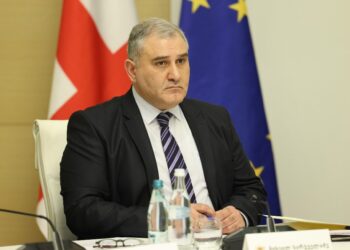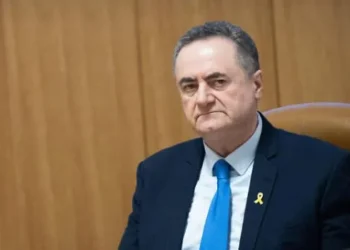“Today marks four years since my imprisonment. I am prohibited from phone calls and meetings with comrades, yet my determination has never wavered—not when I was near death, and not now, as I await October 4. I may have sacrificed the best years of my life for this struggle, but I am certain that even greater years lie ahead,” wrote Georgia’s former president Mikheil Saakashvili in a message commemorating the anniversary of his detention.
Saakashvili’s words come at a particularly fraught moment in Georgian politics. The former president, a polarizing figure and leading voice of the opposition, has been behind bars since October 2021, when he secretly returned to Georgia from years in exile and was immediately arrested.
Since then, Saakashvili has been convicted in multiple cases—some initiated during his absence, others added after his return—on charges including abuse of power, embezzlement, and illegal border crossing. Critics and human rights groups, as well as many in the opposition, argue these prosecutions are politically motivated, intended to neutralize a vocal adversary of the ruling Georgian Dream party.
In March 2025, Saakashvili was sentenced to an additional nine years in prison for alleged embezzlement, bringing his total sentence across all cases to more than 12 years. He was also sentenced for illegal reentry into Georgia—receiving a further 4.5 years—effectively extending his imprisonment through much of the next decade.
Saakashvili’s health has been a recurring point of concern. During his incarceration, he has staged multiple hunger strikes, at times leading to hospitalization at Georgia’s prison hospital or civilian clinics. Some observers argue that limitations on his communications, visits, and access to legal support reflect efforts to isolate him politically even from behind bars.
The October 4 date he references is significant: the opposition has planned a major rally in Tbilisi’s Rustaveli Avenue, calling for political change and release of political prisoners. Saakashvili’s statement positions his personal suffering as part of a larger struggle—one he insists will culminate in new, freer years ahead.
For supporters, he remains a symbol of resistance and a rallying point. For his detractors, he is the central figure in a long-running saga of power, legal battles, and national division. Either way, the anniversary of his arrest underscores how his fate is tightly bound up with Georgia’s current political trajectory.














